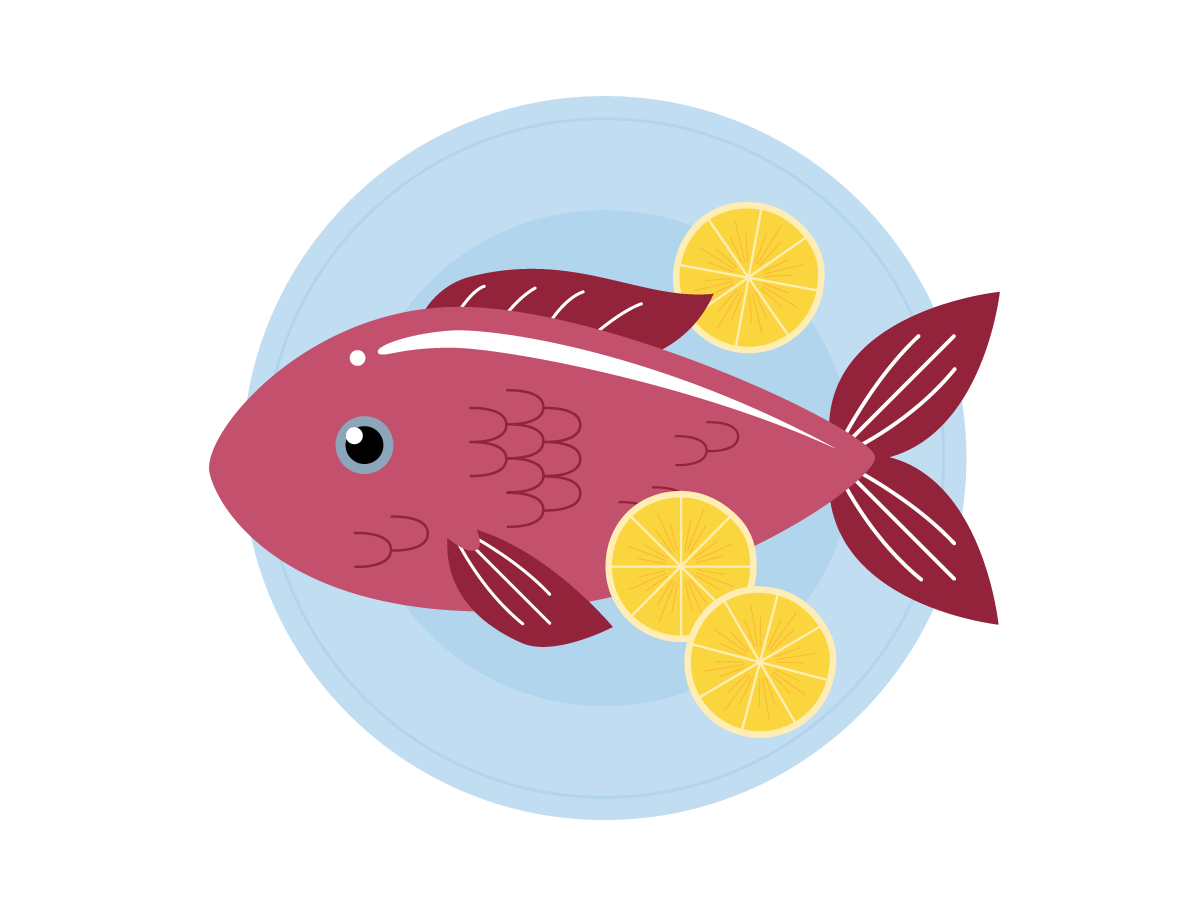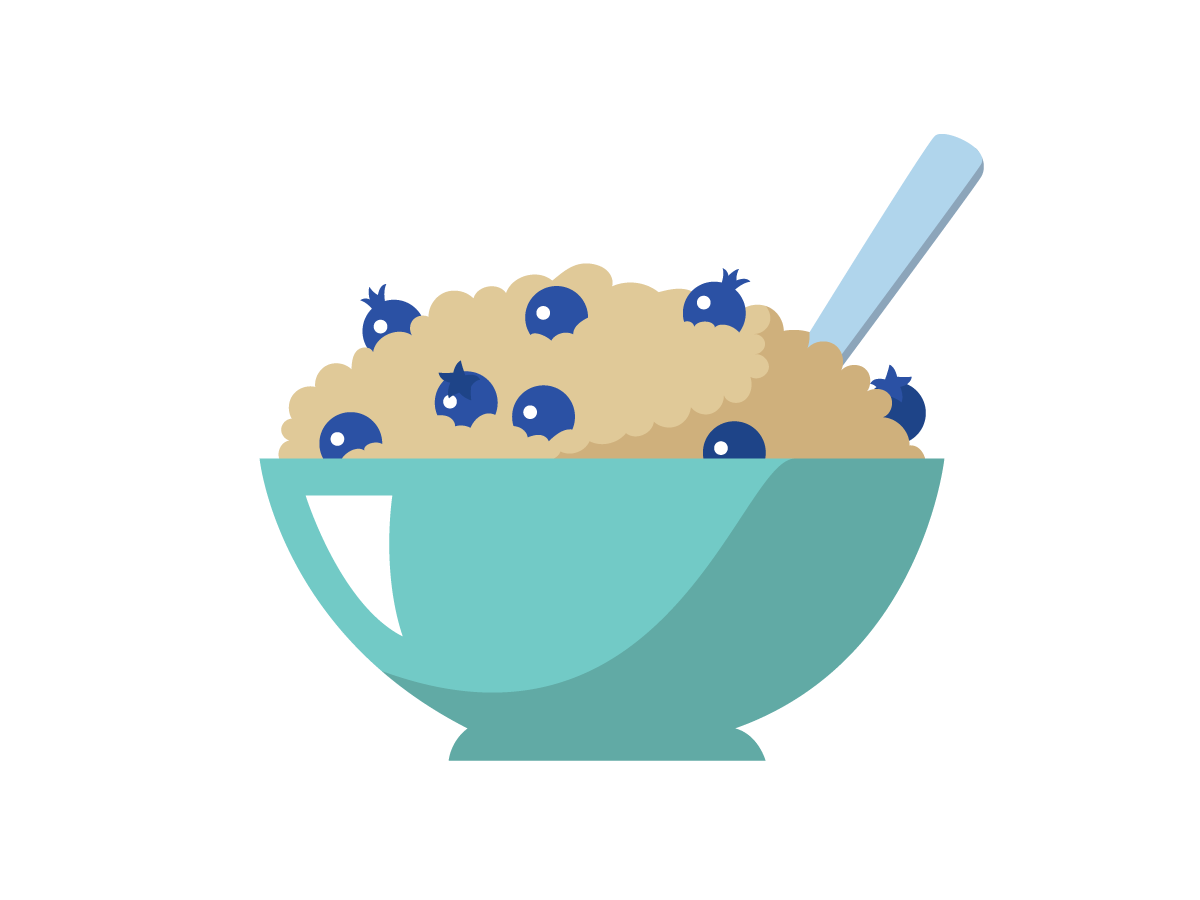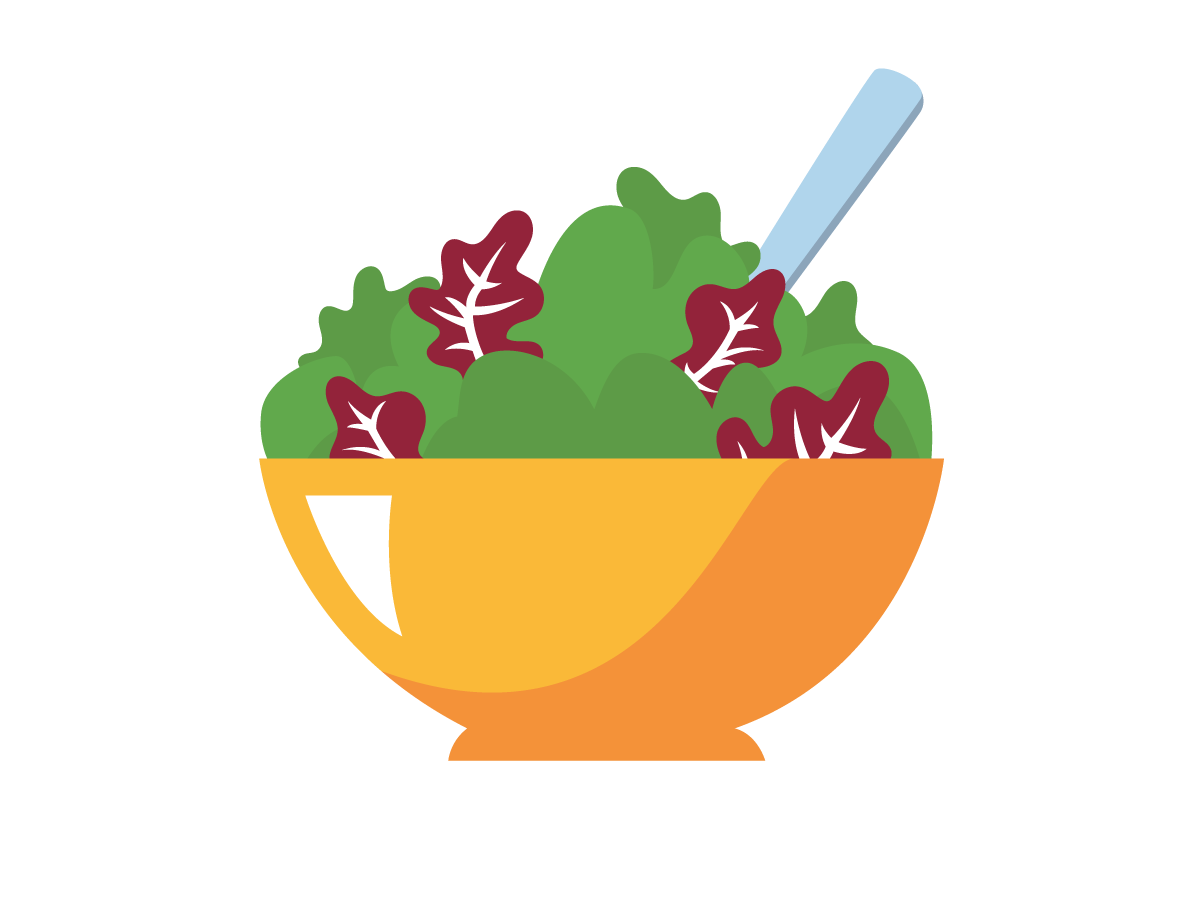Learn the Power of Plants
Learning Objectives
After completing this unit, you’ll be able to:
- Understand the benefits a plant-based diet has on your overall health.
- Identify the key elements of a nutritious, balanced meal.
- Describe the role plants play in keeping you healthy.
Fuel Your Day with the Right Food
Getting through the workday can sometimes be stressful and hectic, but with the right fuel, your body and mind can run at peak performance making your day more manageable. Healthy meals, along with a few vitamin-packed snacks, keep your brain focused and your body energized. Add in some daily wellness tips, and you’re ready to run through your workday and still have energy to spare.

We Are What We Eat
Did you know you can eat three meals a day and still be malnourished? It’s not how much we eat, but what we eat that counts. The types of foods we eat can have a huge impact on our health—diet certainly affects how we look and feel, and it also plays a key role in getting us through our workday.
An unhealthy diet and lack of proper exercise contribute to increases in blood pressure, blood glucose, and cholesterol. And if you’ve checked out the previous module in this Camp B-Well trail, you know that’s a recipe for poor productivity in the workplace! In fact, the BioMed Central Nutrition Journal reports employees with unhealthy diets were 66% more likely to report a productivity loss than healthy eaters. Simply put, the foods we eat have a big impact on our health and the bottom line.
So, what are the best foods to eat? The USDA recommends filling three-quarters of your plate with fruits, vegetables, and grains. The remaining quarter should contain lean proteins that vary from meal to meal.
That’s right, at the very least, 75 percent of every meal should be devoted to plants. And when it comes to the other 25 percent, plants can still play a starring role. Nuts, seeds, and beans can replace meat, poultry, fish, eggs, and dairy to provide a protein-packed punch to keep you going strong all day.

Why Focus on Plants
So, what makes plants so special? There are a lot of reasons plants are the superheroes of the food world—here are just a few.

Omega-3 fatty acids. Healthline explains how omega-3 fatty acids play a crucial role in normal brain development and function. These heart-healthy fats are widely known to be found in certain fishes and, more recently, fish oil supplements. But if you’re not excited about adding a fishy supplement to your daily routine, we have great news. Omega-3s can be found in a wide variety of plants, too! Flaxseeds, chia seeds, and walnuts are a delicious way to add this brainfood to your everyday diet. Add chia seeds to your morning smoothie, sprinkle your favorite muffin with flaxseeds, or include walnuts in your salad for a quick and delicious brain boost. Leafy greens and brassica vegetables, such as broccoli, cauliflower, and brussel sprouts, are also a good source of Omega-3s. Add these healthy fats to your everyday diet and your brain will thank you. 
Dietary fiber. According to the Mayo Clinic, fiber is important as it aids in digestion, lowers cholesterol, and regulates blood sugar. But where can we find dietary fiber? You guessed it: plants! Whole grains, fruits, and vegetables are a hearty source of fiber. So, next time you’re deciding on breakfast, remember that oats, fiber-rich cereals, fruits, and whole grain breads are a great way to kick-start your day. Plus, fiber makes you feel full—holding you over until lunchtime and helping to prevent that dreaded midday crash.

Antioxidants, vitamins, and minerals. Leafy green vegetables like kale, Swiss chard, and spinach are packed with essential antioxidants and nutrients. These green veggies are also a great source of folate, which aids in the production of the mood-boosting neurotransmitter, serotonin (the stuff that makes you feel happy and balanced!) according to the Journal of Psychiatry and Neuroscience . They are also loaded with vitamins A and C, calcium, magnesium, and iron. But don’t let leafy greens steal the show! Fruits, nuts, legumes, and other vegetables are also high in vitamins and minerals including potassium, which can help balance sodium intake and reduce high blood pressure.
Join us in the next unit to learn how to pack more superfoods into our meals and whip up a delicious dish with Salesforce Executive Chef Bill Corbett!